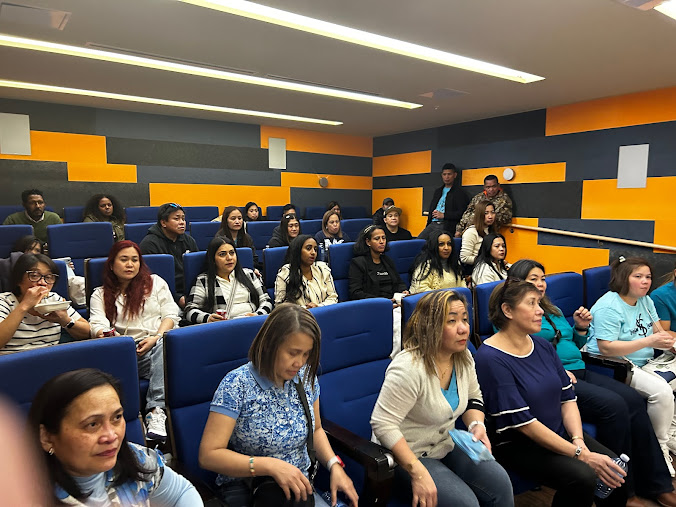Introduction:
As adult learners increasingly embrace online education for professional growth and career advancement, it’s imperative to acknowledge the distinct hurdles they encounter in maintaining academic, social, and mental wellness within a digital learning sphere. This article explores the prevalent challenges confronted by adult learners in online education, with a focus on academic proficiency, social integration, and mental well-being, while offering practical insights to foster a conducive digital environment tailored to their requirements.
Challenges in Online Education for Adult Learners:
- Academic Hurdles:
- Time Management: Balancing professional responsibilities, family commitments, and online coursework poses a significant challenge for adult learners, often resulting in difficulties meeting academic deadlines and adhering to study schedules.
- Diverse Learning Backgrounds: Adult learners bring varied educational experiences and learning preferences, necessitating personalized online instruction to accommodate their unique needs effectively.
- Technological Competency: Some adult learners may lack familiarity with digital tools and platforms, requiring additional support and guidance to navigate online learning environments proficiently.
- Social Obstacles:
- Social Isolation: Adult learners, especially those engaged in part-time or asynchronous studies, may experience a sense of isolation from peers and instructors, lacking the communal support and sense of belonging prevalent in traditional classroom settings.
- Networking Limitations: Online learning environments may offer limited opportunities for networking and professional connections, hindering adult learners’ ability to forge relationships and expand their professional network.
- Communication Barriers: Language disparities or cultural distinctions can impede effective communication and collaboration among adult learners from diverse backgrounds, impacting their social interactions and learning outcomes.
- Mental Well-Being Challenges:
- Stress and Burnout: Juggling multiple obligations and adapting to the demands of online learning can exacerbate stress and lead to burnout among adult learners, adversely affecting their mental well-being and academic performance.
- Self-Doubt and Imposter Syndrome: Adult learners returning to education after a hiatus may grapple with self-doubt and feelings of inadequacy, fostering imposter syndrome and undermining their confidence in their abilities.
- Limited Support Systems: Adult learners may encounter barriers in accessing support services such as counseling or academic advising, exacerbating feelings of isolation and anxiety.
Strategies for Establishing a Healthy Digital Environment for Adult Learners:
- Flexibility in Synchronous Sessions:
- Offer multiple synchronous class sessions at varying times to accommodate adult learners’ diverse schedules, empowering them to select the most suitable time slot.
- Record synchronous sessions for on-demand viewing, enabling learners to review course content and engage in discussions at their convenience.
- Provide clear communication and advance notice of synchronous session schedules to enable learners to plan their participation effectively.
- Encouraging Peer Interaction:
- Incorporate collaborative learning activities and group projects to promote peer interaction and knowledge sharing.
- Organize virtual networking events and professional development workshops to facilitate networking opportunities and foster a supportive learning community.
- Fostering Digital Literacy:
- Offer training and resources to enhance adult learners‘ digital literacy skills, empowering them to navigate online platforms and utilize digital tools effectively.
- Integrate digital literacy components into the curriculum to equip learners with the skills necessary for academic and professional success.
- Prioritizing Mental Health and Social Engagement:
- Provide access to mental health resources and support services to address the stressors and challenges faced by adult learners, emphasizing the importance of self-care and well-being.
- Cultivate a culture of empathy and inclusivity within the online learning community, fostering open dialogue and peer support for mental health issues.
- Encourage social gatherings, in-person workshops, and school activities to promote social interaction and community building among adult learners, complementing online coursework with opportunities for face-to-face engagement.
- Incorporate outreach and practical components into the course curriculum, enabling adult learners to apply theoretical knowledge in real-world settings and fostering hands-on learning experiences that enhance their skills and confidence.
Conclusion:
By acknowledging and addressing the specific challenges encountered by adult learners in online education, EdTech providers and educators can play a pivotal role in enhancing their academic achievement, social engagement, and mental well-being. Through proactive measures aimed at cultivating a supportive digital environment tailored to the needs of adult learners, we can empower them to thrive in their educational pursuits and realize their professional aspirations.
Additionally, educators serve as key stakeholders in identifying and addressing the obstacles that affect student well-being in online education. Through professional development initiatives, teachers can share observations and insights regarding the challenges faced by adult learners, while also prioritizing their own well-being to ensure a positive teaching experience and foster a conducive learning environment for all stakeholders involved.

